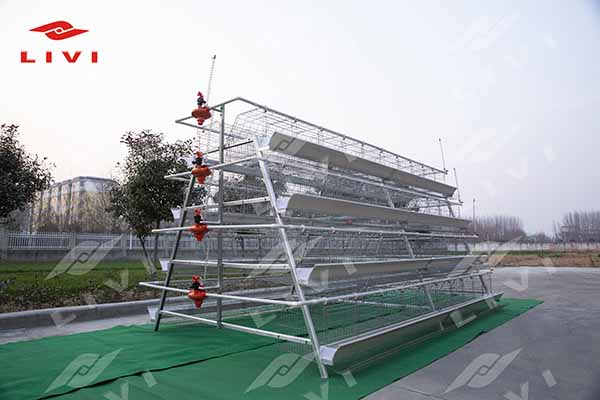How to Improve Egg Production Rate in Tanzania Chicken Farms
Time : 2025-04-27
Improving egg production in chicken farms is a top priority for many poultry farmers in Tanzania. With the growing demand for eggs, both locally and internationally, finding ways to enhance production rates is crucial. In this article, we’ll dive into some practical, actionable tips to help you boost your egg production in Tanzania. So, let’s get started!

1. Select the Right Breed
The first step to improving egg production is to choose the right breed of chicken. In Tanzania, there are several high-yielding breeds like the White Leghorn, Rhode Island Red, and Hy-line Brown that are known for their exceptional egg-laying capabilities. Research and select the breed that best suits your farm’s needs and climate conditions.
2. Provide Proper Housing
A comfortable and hygienic environment is essential for healthy chickens and, consequently, higher egg production. Ensure your chickens have enough space to move around, stretch their wings, and lay their eggs comfortably. Here are a few tips:

- Ventilation: Proper air circulation is crucial to keep the chickens cool and prevent the spread of diseases.
- Temperature: Chickens require a consistent temperature between 18-21°C (64-70°F) for optimal egg production.
- Lighting: Provide consistent lighting to simulate daylight, as this helps regulate the chickens’ egg-laying cycles.
- Hygiene: Regularly clean the coop to prevent the buildup of droppings and other contaminants.
3. Optimize Nutrition
A well-balanced diet is the cornerstone of healthy, productive chickens. To improve egg production, provide your chickens with a high-quality diet that meets their nutritional needs. Here’s what to consider:
- Protein: Chickens require around 16-18% protein in their diet to support egg production.
- Calcium: Ensure your chickens have access to a source of calcium, like crushed oyster shells, to support shell development.
- Vitamins and Minerals: Provide a diet rich in vitamins and minerals, as these play a vital role in overall chicken health and egg quality.
- Grain Mixes: Use a grain mix formulated specifically for egg-laying chickens to ensure they receive the correct balance of nutrients.
4. Manage Parasites and Diseases
Parasites and diseases can significantly impact egg production. Regularly monitor your flock for signs of illness and promptly address any issues. Here are some preventive measures:
- Regular Check-ups: Schedule routine veterinary check-ups for your chickens.
- Vaccinations: Keep your flock up-to-date on vaccinations to protect against common poultry diseases.
- Parasite Control: Implement a proper deworming and mite control program to keep parasites at bay.
- Sanitation: Maintain clean and dry housing conditions to reduce the risk of disease transmission.
5. Manage Breeding Stock
Regularly breeding your chickens is essential to maintain a productive flock. Consider the following tips to manage your breeding stock effectively:
- Breeding Schedule: Develop a breeding schedule that ensures your chickens have enough time to recover between layings.
- Selection: Choose healthy, high-producing hens as breeding stock.
- Culling: Remove low-producing or unhealthy birds from the breeding program.
- Crossbreeding: Consider crossbreeding different strains to enhance egg production and disease resistance.
6. Monitor and Record
Keeping track of your flock’s performance is crucial for identifying areas of improvement. Monitor the following factors:
- Egg Production Rate: Regularly assess the number of eggs laid by your chickens.
- Egg Quality: Check for cracks, thin shells, and other defects in the eggs.
- Feed Consumption: Monitor the amount of feed consumed by your chickens.
- Health: Keep an eye on any signs of illness or injury in your flock.
7. Stay Informed
The poultry industry is constantly evolving, with new technologies and techniques emerging regularly. Stay informed about the latest trends and advancements in poultry farming to keep your egg production on the rise.
Conclusion
Improving egg production in Tanzania chicken farms is a multifaceted endeavor. By selecting the right breed, providing optimal housing, optimizing nutrition, managing parasites and diseases, and keeping track of your flock’s performance, you can enhance your egg production rates. Stay informed, and you’ll be well on your way to a more successful poultry farming operation!
your egg production rates. Stay informed, and you’ll be well on your way to a more successful poultry farming operation!











